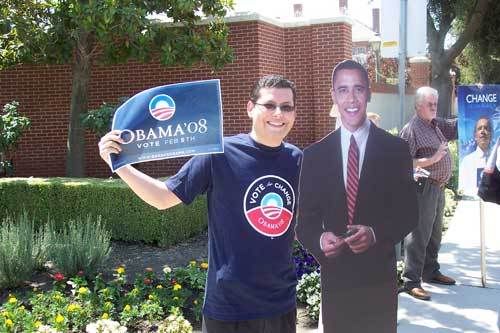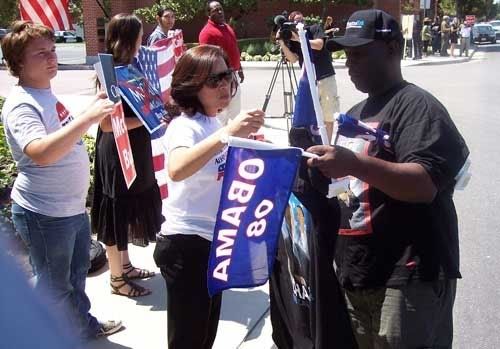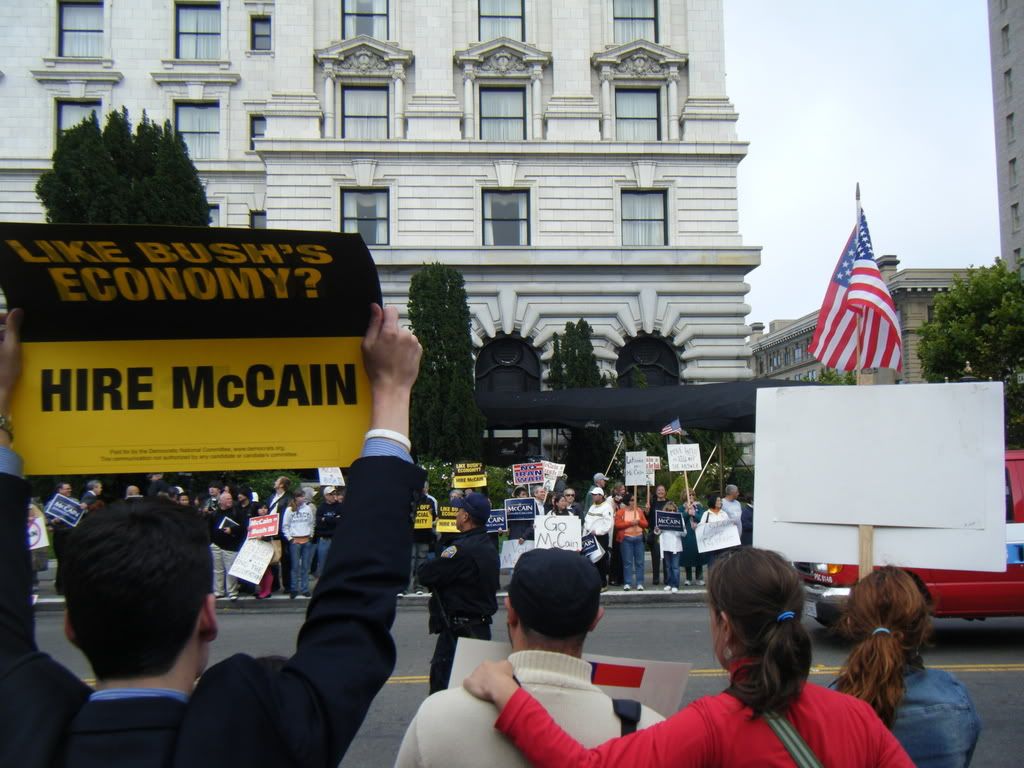Following up on gubernatorial trial balloons appearing in two Chronicle columns on Monday, Matier and Ross again take a look at speculation Senator Dianne Feinstein is running for Governor (it should be noted that this appears as an item following Gavin Newsom’s psychic advisor saying he’ll win and could even be president). The problem is, that DiFi would have a helluva tough time making it through a Democratic primary. Consider a few points after the jump and add ideas you have in the comments.
1. The Poll Numbers Aren’t Good
At this point in the cycle, the poll is mostly a reflection name recognition, yet still DiFi only has 50% in a two person race and I doubt any advisers to potential candidates are going to recommend folding shop with numbers that weak. I mean, she’s polling two points worse than she finished in the 1990 gubernatorial primary and the campaign hasn’t even begun.
Furthermore, the most recent SurveyUSA tracking shows Boxer with a significantly stronger approval, I result I don’t remember seeing before. But most importantly, with the internet and 24 hour news cycle the speed of politics is quickening and it should be pointed out that Feinstein’s boy Joe Lieberman was leading Ned Lamont 68-13 less than six months before losing the primary. If I were advising a potential gubernatorial candidate, that primary is one I’d suggest merits a good bit of study.
2. Her 1990 Primary Model Won’t Work this Generation
I’ll admit that I have no first hand memories of her 1990 (which is a good time to point out that people will be voting in the 2010 primary who weren’t even born for that race). But what I’ve heard and read seems to jive with this contempory analysis from the NYT (and the fact her husband funded more than half her campaign):
Her campaign also played heavily to women, arguing that only a woman could be trusted to fight off attempts to limit the right to abortion. […]
According to exit surveys by the California Poll, she ran extremely well among male voters. Her margin was 13 points among women, 9 points among men. ”Even if no women voted, Feinstein would have won,” said Mervin D. Field, director of the poll, a nonprofit, a nonpartisan, media-sponsored organization. He said that while her position on capital punishment helped, it was her forceful, charismatic style in the television age that won the election. ”It was style that did it, command presence,” he said.
Neither of these dynamics are available to her in 2010. First, choice is not an issue she can brag about defending. Other than a few weeks in the senate with HW Bush, her entire record of standing up for choice will be viewed by her caving to George W. Bush on judicial question after judicial question. She has been an unmitigated disaster on privacy and judicial questions and that talking point is out the window.
The next point is the frequently cited domination in the television age. While still relevant to a degree, numbers I’ve seen suggest that we are likely to face a situation in 2010 were more than 50% of California voters will have a Digital Video Recorder (think TiVo) by the time absentee ballots begin hitting. While political advertising staples like local evening news are programs that are less likely to be recorded by people with the devices, it still severely limits this as a path towards the nomination.
Finally, each technological age plays to the inherent strengths and skills of different types of politicians. Just like DiFi was able to gain a unique advantage by television complimenting her personality, so too is there a large advantage for candidates who are complimented well by the internet age. And the 2010 gubernatorial race is likely to be won online, in a universe foreign to her as a candidate.
3. Her Instincts are Obsolete
While age shouldn’t play a disproportionate role, the fact that Feinstein is one of the few people in America who is actually older than McCain is fair game when it comes to judging whether her political world-view is accurate or even relevant beyond the legacy power associated with being a sitting senator. My contention is that DiFi’s political calculation is based not on a firm set of beliefs, but by a political calculation based on outdated assumptions. I see the clearest example is her trying to censure Clinton for lying about a B.J. but not standing up to Bush for lying into war (a war she was fool enough to support). Her entire career is marked by her hatred of the left. From her losing for mayor (twice) to everyone trying to get her to pull out of the 1990 primary, to the constant barrage of phone calls her office fields from progressives asking her not to cave again on the latest issue, it is clear that her triangulation and fear of what the right will say is not just calculation, but a personal angst build over decades. While she was a leader in campaigning during the DLC era, those days have passed.
4. The Democratic Party has Passed Her By
Ask Phil Angelides, the CDP endorsement is a huge boost (and ask Carole Migden about the inverse of this dynamic). The people-powered movement has seen an influx of people getting more and more involved in internal party politics. This resurgence is in-spite of politicians like Feinstein, it is a direct result of the vacuum created by her style of politics. The question at the CDP is not whether DiFi should be rewarded with an endorsement for another office, but whether she should be censured for doing a miserable job in the office she currently holds. I fully expect to see yet another year of historic interest in next year’s Assembly District elections and DiFi lacks anything approximating a grassroots base. She succeeds in-spite of the base and the ability of top-down politics being able to overcome people is diminishing with each passing day.
5. President Barack Obama
In all likelihood, we are going to have a Democratic President. Yet even if he does lose, Obama is training a ton of people how to campaign in the 21st century. The same reasons that brought many of these people to Obama are likely to turn them off to Dianne Feinstein. Her campaign message as a gubernatorial candidate would be far closer to Hillary/McCain than Obama. It is tough to be the “change” candidate to “turn the page” when you lost the general election for the same office two decades earlier and are rightly seen as nearly a parody of inside-the-beltway thinking. Even if Obama doesn’t endorse, the support of his supporters is going to be worth far more than Dick Blum’s checkbook in a Democratic primary.




